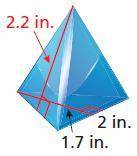 1
1 Second stanza:
Now Sam McGee was from Tennessee,
where the cotton blooms and blows.
Why he left his home in the South to roam
’round the Pole, God only knows.
He was always cold, but the land of gold
seemed to hold him like a spell;
Though he’d often say in his homely way
that he’d “sooner live in hell.”
From what I read here,
I believe that it suggests a tone of distress.
Because "...he left his home" to roam.
In addition, he "was always cold".
 1
1 Answer:
Answer given below.
Step-by-step explanation:
Searching selves , the unexpected blooms ,
Awakening hearts , journey looms .
Curiosity fills pages , essence unfurls ,
Identity puzzle weighs , a soul in swirls.
Heritage 's embrace , Kolkata to dream ,
Fusion of worlds , harmony gleam .
Culture's clash , a tale of grace ,
Belonging in tale , a woven embrace.
Chapter unfolds , fourteen years gone ,
Gogol's birthday , time moves on.
Celebrate story , a symphony near ,
Narrative woven , echoes clear .
As Gogol grows , inspire extends ,
Essence weaves , a journey transcends.
In this found poem , quest we relate ,
For identity echoes , the paths we create
 1
1 Answer:
Poem with highlighted words given below:
Step-by-step explanation:
It is another excuse for a party,
a tame affair with pizzas and Ping-Pong.
For the first time, he has said no.
The Bengali celebration, held on the closest Saturday,
forty guests, dazzling saris,
a group of men starting a poker game.
Gogol is the oldest child,
but he and Moushumi have nothing to say.
She reads Pride and Prejudice,
while the children watch TV.
Presents are opened, dictionaries, calculators,
ugly sweaters, and more.
His father gives him a book,
The Short Stories of Nikolai Gogol.
Gogol examines the picture,
relieved to see no resemblance.
He hates questions about his name,
hates having to explain.
His name is both absurd and obscure,
neither Indian nor American.
He wishes he could disguise it,
shorten it somehow.
He dislikes being Gogol,
his father's favorite author.
He wishes he had been named Nikhil,
but it's too late now.
Gogol hates his name,
its irrelevance and weight.
But his father feels a kinship,
a special connection with Gogol.
He keeps the explanation to himself,
a silent secret. G
ogol locks the door,
settles down with his lyrics.
And he realizes,
Gogol isn't his first name.
It's Nikolai,
a last name turned first name.
 1
1 Second stanza:
Now Sam McGee was from Tennessee,
where the cotton blooms and blows.
Why he left his home in the South to roam
’round the Pole, God only knows.
He was always cold, but the land of gold
seemed to hold him like a spell;
Though he’d often say in his homely way
that he’d “sooner live in hell.”
From what I read here,
I believe that it suggests a tone of distress.
Because "...he left his home" to roam.
In addition, he "was always cold".
 2
2 WHO LORD HENRY
Explanation:
#didn'treadthestory ALSO CAN U HELP ME WITH MY MATH PLEASE

 2
2 WHO LORD HENRY
Explanation:
#didn'treadthestory ALSO CAN U HELP ME WITH MY MATH PLEASE

 1
1  3
3 B. They have a tendency to talk about themselves.
Explanation:
According to the stated paragraph and sentence, the narrator mentions how he and his cousins won't stop talking about themselves as they try to keep up the illusion by mentioning names and casting fringes on their family connection.
Therefore, the narrator suggests that he and his cousins have a tendency to talk about themselves.
 10
10 Toward the end of the first paragraph, the references suggest that the past of the narrator is vivid to him.
In the first paragraph, it can be noted that the narrator and his cousins continually talked about the happenings in the past. The narrator was reminiscing about the past and the memories kept coming back. The happenings in one of the upstairs rooms and the explosive laugh depicted an image of the delineated past of the narrator.In conclusion, the correct option is B.
Read related link on:
link

It will provide an instant answer!
